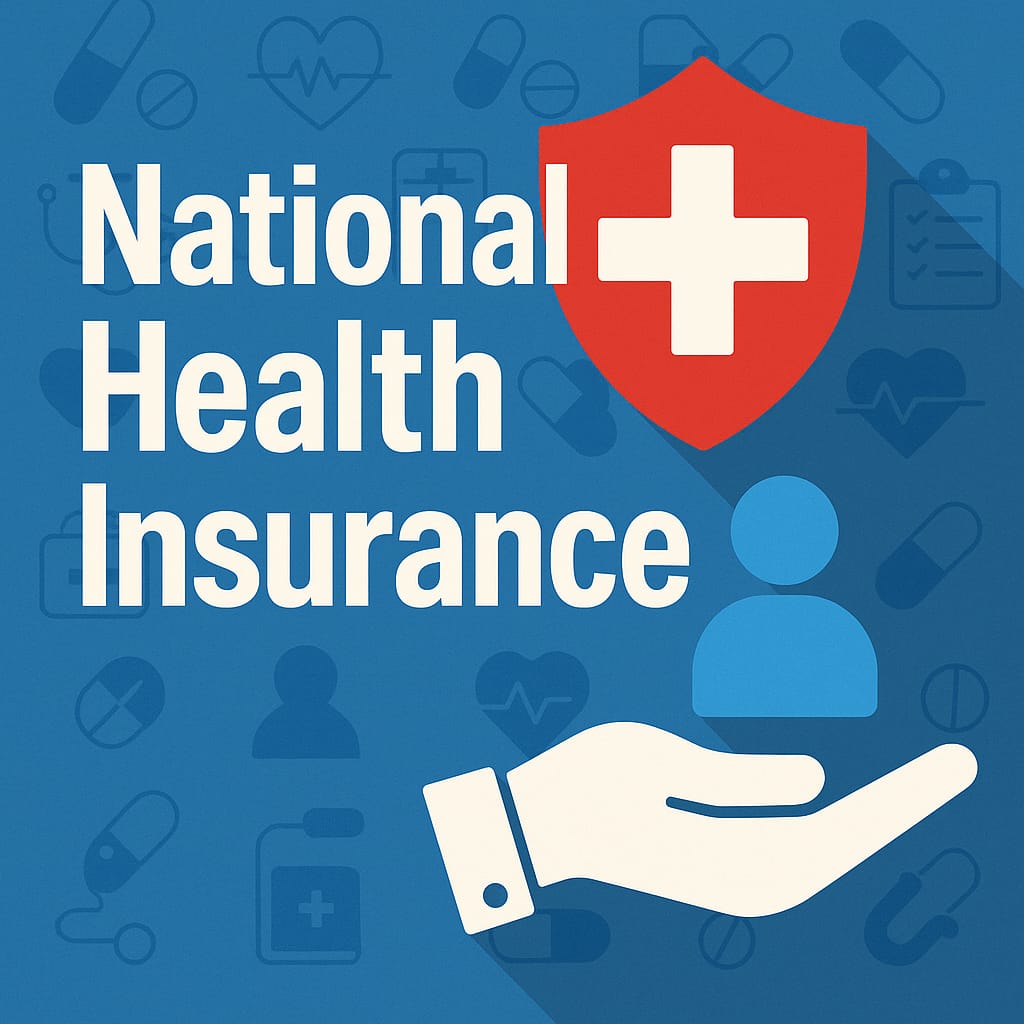
CLICK HERE TO JOIN OUR WHAT’S APP GROUP
CABINET NOTES: The Cabinet of Antigua and Barbuda welcomed a delegation comprising Professors and Researchers from the University of the West Indies (UWI) St. Augustine Campus in Trinidad and Tobago, along with senior government officials including the Chairman and CEO of the Medical Benefits Scheme (MBS), the Permanent Secretary in the Ministry of Health, Wellness and the Environment, the Chairman and Medical Director of the Mount St. John Medical Centre Board, and two representatives from the Legal Department.
The purpose of the engagement was to provide an update on the national strategy to establish a National Health Insurance (NHI) system by transitioning the current MBS into a universal, legislated health financing model that ensures lifetime healthcare coverage for all residents.
The Cabinet was reminded that the NHI will be a mandatory, pooled health financing system, offering a defined package of health services to all individuals—regardless of age, income, or pre-existing medical conditions.
The system is intended to enhance efficiency, equity, and responsiveness while promoting sustainable and high-quality care.
One of the critical findings presented was that Universal Health Coverage (UHC) in Antigua and Barbuda currently stands between 69% and 76%, indicating a coverage gap of approximately 24% to 31%.
Among the anticipated benefits of implementing the NHI are:
- Broader access to healthcare across both public and private sectors
- Enhanced financial protection for families
- Improved coordination and efficiency within the healthcare system
- A strengthened national framework aligned with Sustainable Development Goal (SDG) 3.8, which aims to achieve Universal Health Coverage
The Cabinet was informed that significant progress has been made toward implementation. A National Health Insurance Policy Framework and a Responsibility Matrix have been developed.

A completion schedule has also been outlined, detailing steps for institutional reforms, stakeholder engagement—including the Ministry of Finance, MBS, and MSJMC—and a phased implementation approach. Additionally, comparative benchmarks with other OECS countries have been analyzed to gauge national readiness.
The following actions were presented as priorities for the next phase:
- Enactment of supporting legislation and continued stakeholder consultations
- A national public education campaign and resident registration process
- A pilot phase, to be followed by full-scale implementation
The team was directed to continue its work and to provide regular progress updates to Cabinet.
The Government reaffirmed its strong commitment to achieving universal, high-quality healthcare through the successful implementation of the National Health Insurance—ensuring no resident is left behind.
CLICK HERE TO JOIN OUR WHAT’S APP GROUP
CLICK HERE TO JOIN OUR WHAT’S APP GROUP
CLICK HERE TO JOIN OUR WHAT’S APP GROUP
CLICK HERE TO JOIN OUR WHAT’S APP GROUP
CLICK HERE TO JOIN OUR WHAT’S APP GROUP
CLICK HERE TO JOIN OUR WHAT’S APP GROUP
CLICK HERE TO JOIN OUR WHAT’S APP GROUP
CLICK HERE TO JOIN OUR WHAT’S APP GROUP
CLICK HERE TO JOIN OUR WHAT’S APP GROUP
CLICK HERE TO JOIN OUR WHAT’S APP GROUP
CLICK HERE TO JOIN OUR WHAT’S APP GROUP
CLICK HERE TO JOIN OUR WHAT’S APP GROUP
Advertise with the mоѕt vіѕіtеd nеwѕ ѕіtе іn Antigua!
We offer fully customizable and flexible digital marketing packages.
Contact us at [email protected]
















It all sounds great but I think the government should seek professional advice from China, as their health care system is very good.
Several European countries have excellent healthcare systems. While the “best” can be subjective and depend on specific needs, Switzerland, Norway, and the Netherlands are often cited as leaders due to their high quality of care, accessibility, and patient-centered approaches.
Switzerland:
Mandatory private health insurance ensures high standards and allows for personalized care, with a focus on patient choice and access to top-tier medical facilities.
Norway:
Known for excellent accessibility and a low percentage of adults missing out on necessary treatment. Healthcare reports cite that new telecommunications systems have also improved access.
The Netherlands:
A highly-regarded system with a strong emphasis on patient choice and access to quality care.
we need not to re-invent the wheel. There are many studies and examples that we can take from and incorporate to suite our need. We already have a very good system but sadly it doesn’t provide for all types of illness. And none contributing persons are left out. When I was young I did not see the wisdom in paying into the MBS scheme but now I’m older(OLD) I understand that you now need them more then ever. Actually there was a time I didn’t even go the MBS Pharmacy for my medication because I had my private insurance. But when I see the monlty medical bills I pay, I wonder how people that do not have the same financial ability as me afford their medication. And Sparrow use to sing that age is just a number, but I can tell you he lied. With age come the ailments. It’s like they were waiting on you around the corner.
Comments are closed.